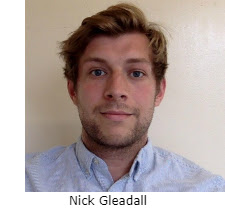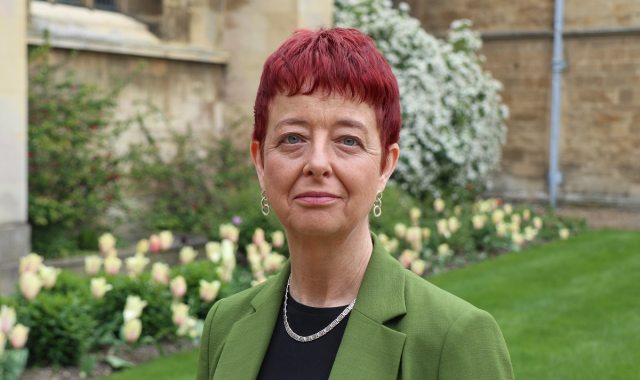Caian part of team behind early warning system for disease outbreaks
- 25 June 2021
- 2 minutes
As part of an international team, Caian Dr Nicholas Gleadall (Haematology PhD 2016) alongside Dr Michael Roberts and Professor Carola-Bibiane Schönlieb of the Department of Applied Mathematics and Theoretical Physics have been awarded a £1million prize by the Trinity Challenge to further develop their innovative infectious disease outbreak detection system.
The COVID-19 pandemic has highlighted that there is a critical need for simple, affordable, and scalable technologies for early detection of novel emerging infectious disease outbreaks. To drive development of these tools the Trinity Challenge, a global call for solutions to this problem, was established.
The BloodCounts! solution, developed by Dr Roberts and Dr Gleadall, who recently completed his PhD at Caius and is awaiting a pandemic-delayed graduation, uses data from routine blood tests and powerful artificial intelligence-based techniques to provide a ‘Tsunami-like’ early warning system for novel disease outbreaks.
Unlike many current test methods their approach does not require any prior knowledge of a specific pathogen to work. Instead, they use full blood count data to exploit the pathogen detecting abilities of the human immune system by observing changes in the blood measurements associated with infection.
As the full blood count is the world’s most common medical laboratory test, with over 3.6 billion being performed worldwide each year, the BloodCounts! team can rapidly apply their methods to scan for abnormal changes in the blood cells of large populations - alerting public health agencies to potential outbreaks of pathogen infection.
This unique solution is a powerful demonstration of how the application of AI-based methods, built upon rigorous mathematics, can lead to huge healthcare benefits when applied in many areas of medicine.
 Dr Gleadall, of the University of Cambridge Department of Haematology and NHS Blood and Transplant, said: “We realised that hundreds of millions of full blood count tests were being performed every day worldwide, and this meant that we could apply our AI-methods at population scale.
Dr Gleadall, of the University of Cambridge Department of Haematology and NHS Blood and Transplant, said: “We realised that hundreds of millions of full blood count tests were being performed every day worldwide, and this meant that we could apply our AI-methods at population scale.
“Usually, the rich measurement data are discarded after summary results have been reported, but by working with CUH Addenbrookes, Barts Health London, and University College London, all NHS Hospitals, we have rescued throughout the pandemic the rich data from 2.8 million full blood count tests.”
BloodCounts! will use the funds from the Trinity Challenge to recruit staff to coordinate this world-wide project.
Professor Schönlieb is Professor of Applied Mathematics and Head of Cambridge Image Analysis Group, and Dr Roberts is a Senior Research Associate. Both are based at the Department of Applied Mathematics and Theoretical Physics (DAMTP) at the University of Cambridge.


